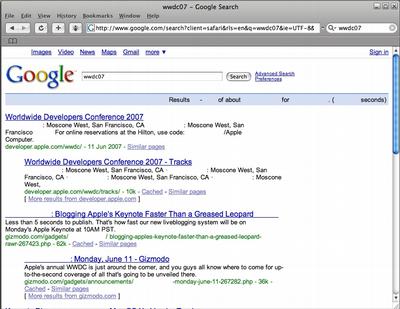While testing browser behavior regarding inline JavaScript evaluation and the back and forward buttons I found a very interesting thing. When a script is included in the HTML to execute on parsing (not on load but inline) Internet Explorer (7 on Vista tested) and Safari 3 for Windows will re-execute the script when a user returns via the back button. In my mind this is the correct behavior, since you actually visited the page twice.
The thing is that Firefox (2.0.0.6 on Vista tested) and Opera (9.20 on Vista tested) don’t agree with me. Well maybe they do and don’t live by their beliefs. What they do is nothing. You come back and no scripts are executed. Not even one request is sent to the server in Firefox.
This “feature” is sometimes a great thing – all the AJAXy stuff and all the JavaScript enhancements are already there and don’t need to be rendered again in turn saving power and time. At other times it’s a pain in the a** since some stuff does return to its default state and some doesn’t. This problem is most often observed with dynamic/advance forms that lose their default values/states. Since even onload is not fired this can get annoying…
Besides all the interface problems you might encounter due to this “rogue” behavior, there are also a few issues regarding statistics. It’s harder to inspect the path of a user, the time a user spent on a page, the number of page views in a visit and other related metrics. The other significant issue is that browser usage statistics might be skewed. To answer this last issue we’d have to know how these statistics are measured.
Let’s take a user that is used to clicking the back button while navigating a site with a 2 level deep navigational tree. She comes to the page, goes in one branch and then to a second, very distant branch. Internet Explorer would register 7 page views (1 on the root, 2 to get down, 2 back up and 2 more down), while Firefox would only register 5 page views (1 on the root, 2 to get down, ignore the 2 back buttons, 2 more down) – a 1.4:1 ratio.
If the statistics are based on sessions or unique users we have 50% IE and 50% FF. If we base them on hits we have 58% IE and 42% FF – a 16 percentage point difference or as we said before a 40% difference. This is not something you could just ignore…
Exercise for the reader – why do “unsupported” browsers always have a small browser share in hit based browser metrics?
